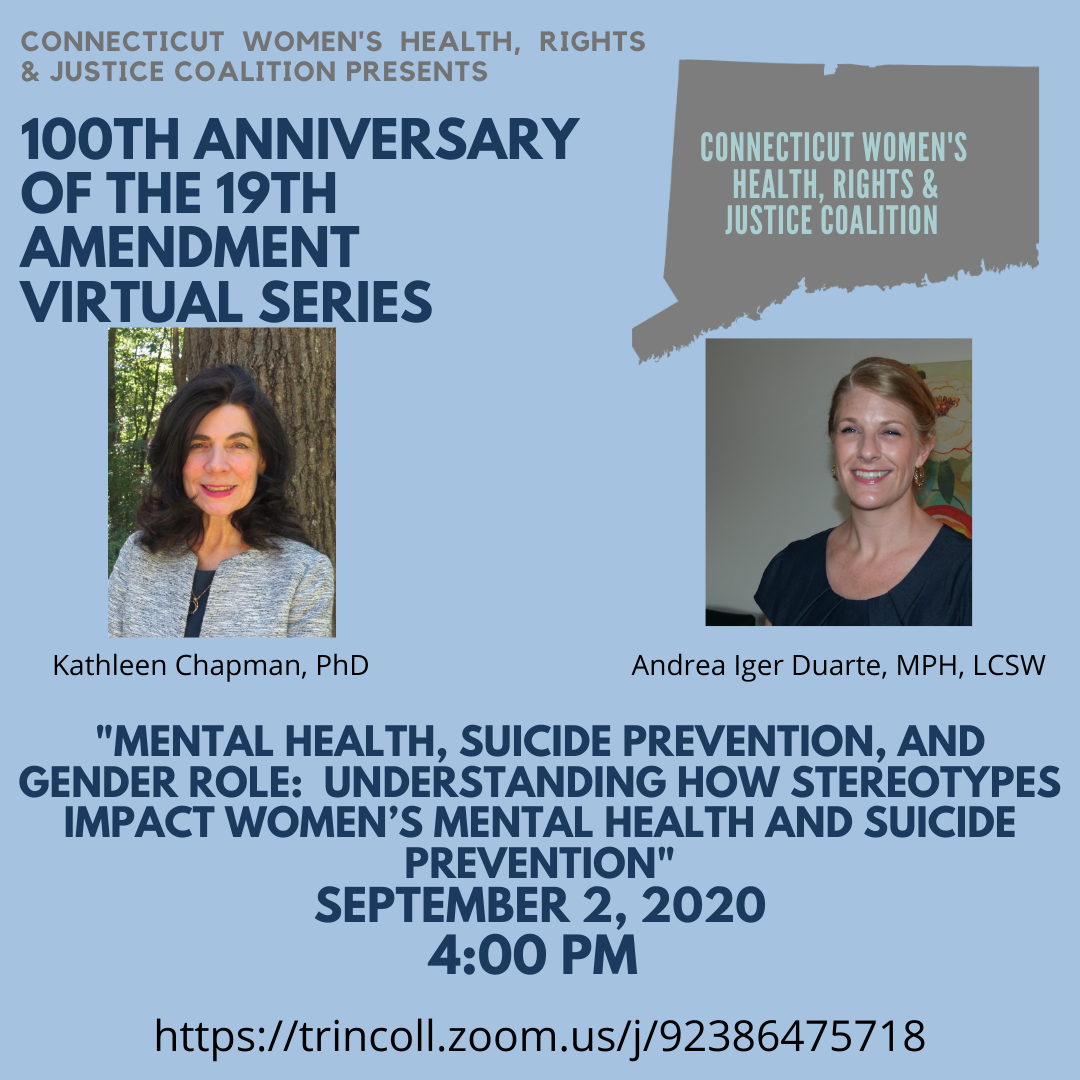
ANDREA IGER DUARTE, LCSW, MPH. Ms. Duarte is a Licensed Clinical Social Worker and Public Health Professional who received her Masters Degrees from the University of Connecticut and has over 25 years of experience in substance abuse and suicide prevention, and mental health promotion. Ms. Duarte is a Behavioral Health Program Manager in the Prevention and Health Promotion Division of the CT Department of Mental Health and Addiction Services, Office of the Commissioner. She oversees federal and statewide initiatives and contracts, is the Suicide Prevention Director, and Employee Assistance Program Liaison. Ms. Duarte is a member of many statewide committees, a founding member of the CT Chapter of the American Foundation for Suicide Prevention, has served as the Co-Chair of the CT Suicide Advisory Board since January 2012, and is the 2017 recipient of the CT Psychological Association’s Distinguished Contribution to Psychology in the Public Interest Award.
Kathleen Chapman, Ph.D.
Dr. Chapman is a licensed clinical psychologist working in a DMHAS community mental health center, River Valley Services, in the position of Quality Management Director and is in part time private practice. She received her doctorate from the University of Connecticut with a research interest in how gender role stereotypes influence the perception and treatment of women with substance abuse and mental health needs. She is also a member of the Board of the Connecticut Psychological Association, as Representative for Public Interest, and a member of the Connecticut Suicide Advisory Board. She provides training on suicide prevention in treatment and community settings across the state, and is involved in developing core competencies in suicide prevention for treatment providers. She believes that knowledge and openness about suicide, and the use of evidence based assessment and intervention, empowers us in ending suicide.